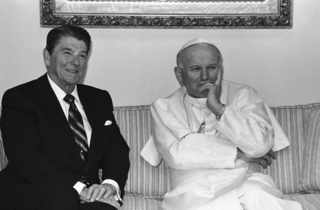Liberalism began as a political project that sought to curtail the role of religion in public life. Religious impulses haven't proven easy to expel, however, even in secular societies. Contemporary secular liberalism aspires to be a universal project that supplants traditional religion and relegates it to the private sphere. Paradoxically, this process frustrates the spiritual desires of many modern secular people, who are unsatisfied with thin consumerism and wish to participate in something greater than themselves. Their mounting rejection of the liberal project has precipitated a crisis, one felt most acutely in the political realm. It has taken the form of a resurgent nationalism, an inchoate response to the suppression of faith that is inadequate and perhaps dangerous. We need to address the weakness of liberal modernity differently, which means metaphysically. No doubt, an appeal to metaphysics strikes many as strangely abstract and inconsequential. Politics is the realm of action, and people want to see church leaders, politicians, lawyers, and columnists fighting for religious causes. One can sympathize with this instinct, but it ignores the deeper problem. The dispute over metaphysics was the concrete issue from the beginning. It always has been.
The Metaphysics of Democracy
Read Full Article »
Comment




